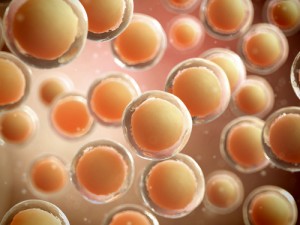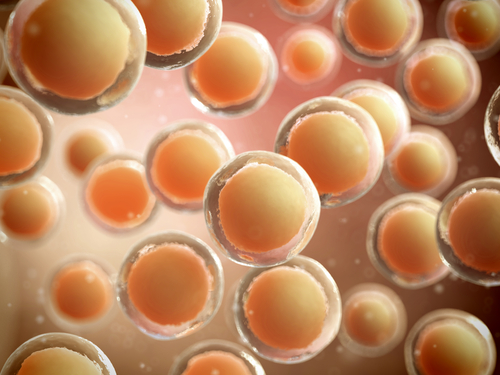 During pregnancy, a rapid and controlled expansion of mammary stem cells (MaSCs) is induced to produce milk-producing cells essential to lactation. The pool of mammary stem cells is required to remodel breast and lactating glands early during pregnancy and, once milk production begins, are normally switched off.
During pregnancy, a rapid and controlled expansion of mammary stem cells (MaSCs) is induced to produce milk-producing cells essential to lactation. The pool of mammary stem cells is required to remodel breast and lactating glands early during pregnancy and, once milk production begins, are normally switched off.
In a study entitled “Integrin αvβ3 Drives Slug Activation and Stemness in the Pregnant and Neoplastic Mammary Gland” and published in Developmental Cell, researchers found a new connection between pregnancy and breast cancer by showing that cancer cells are capable of hijacking stem-cell activation signals to induce aggressiveness and growth of tumors. “This normal pathway ends up contributing to the progression of cancer,” Jay Desgrosellier, PhD, assistant professor of pathology and first author of the study said in a University press release.
The team at the University of California, San Diego School of Medicine and Moores Cancer Center found that integrin αvβ3 (CD61) expression in MaSCs, which mediates pregnancy-induced MaSC expansion, is manipulated by cancer cells, regulating stem-like behavior and allowing these cells to proliferate faster, leading to more aggressive tumors.
“By understanding a fundamental mechanism of mammary gland development during pregnancy, we have gained a rare insight into how aggressive breast cancer might be treated. This pathway can be exploited. Certain drugs are known to disrupt this pathway and may interfere with the process of breast cancer progression,” David A. Cheresh, PhD, Distinguished Professor of Pathology and vice-chair for research and development said in a UC Sand Diego press release.
While the study suggests mediators of stem cell behavior during pregnancy may contribute to pregnancy-associated breast cancers, the authors highlight that they are not the cause of breast cancer. The signals, they said, may induce acceleration and aggressiveness of a cancer already in progress.
[adrotate group=”3″]
Accordingly, Dr. Cheresh explained, “Our work doesn’t speak to the actual cause of cancer. Rather, it explains what can happen once cancer has been initiated. Here’s an analogy: To get cancer, you first have to start with an oncogene, a gene that carries a mutation and has the potential to initiate cancer. Think of the oncogene as turning on a car’s ignition. The signaling pathway exploited by cancer cells is like applying gas. It gets the car moving, but it means nothing if the oncogene hasn’t first started the process.”
CD61, due to its role, both in mammary remodel during pregnancy and cancer can be used as a good marker to diagnose and treat cancer cases. “Detecting CD61 might help doctors determine what kind of therapeutic approach to use, knowing that they might be dealing with a more aggressive yet treatable form of breast cancer. For example, there are existing drugs that block CD61 signaling, which might be another potential aspect of treatment” Dr. Cheresh also explained in the press release.

